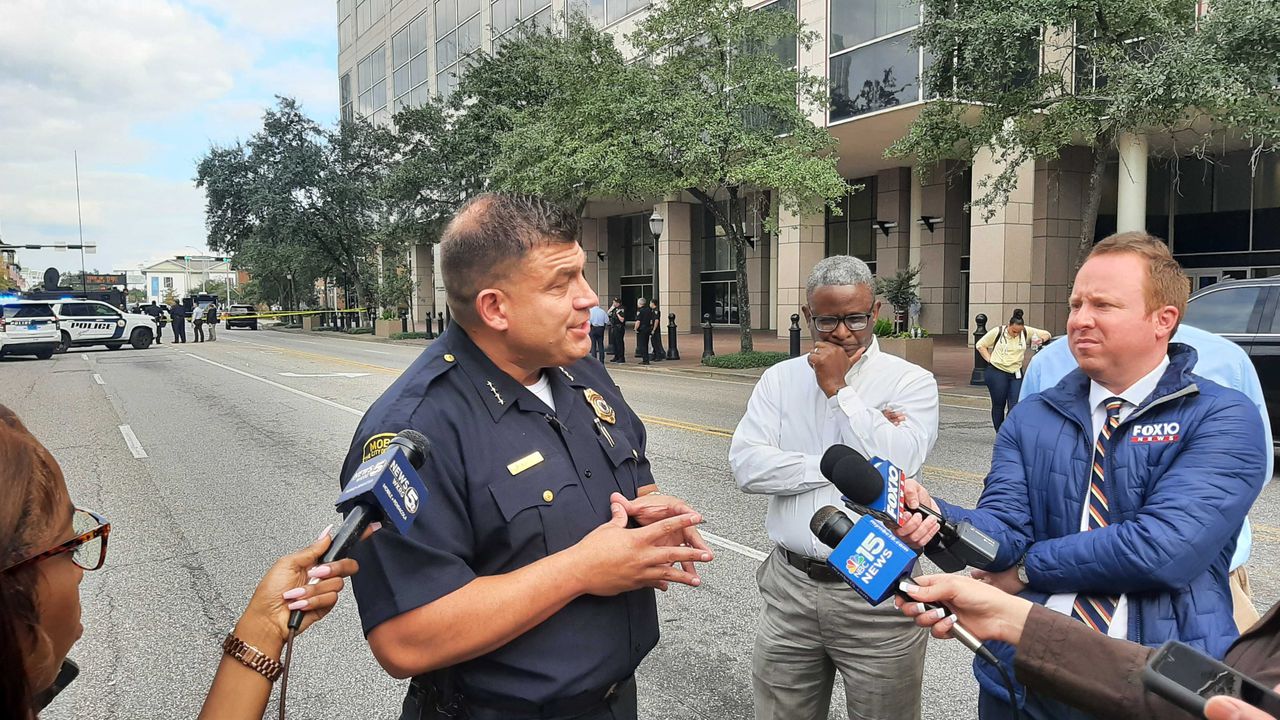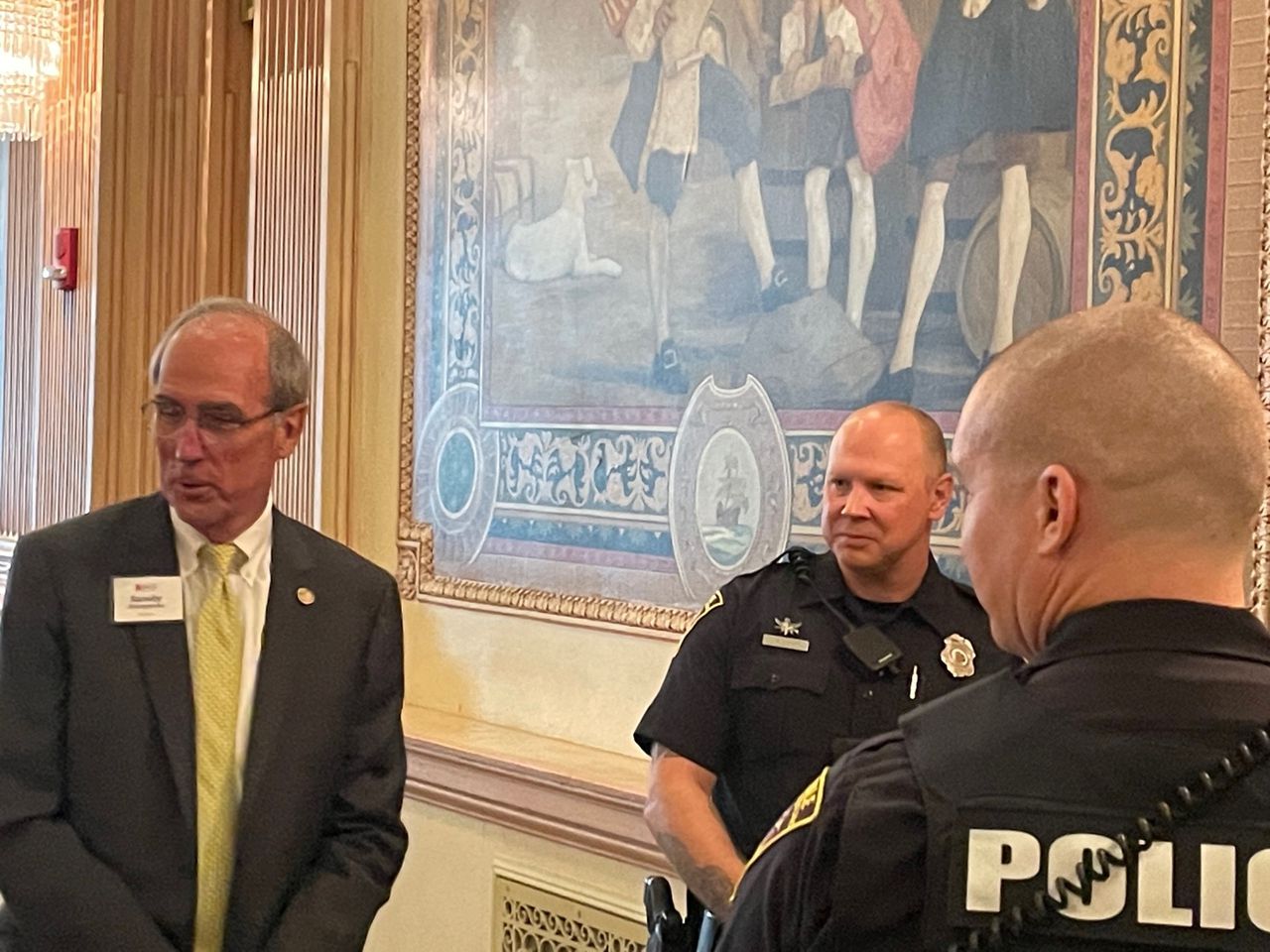How Mobile plans to make Mardi Gras ‘a safe event’
Mardi Gras returns to the city where it was born more than 300 years ago with the first of more than two weeks of parades kicking off Friday. The Conde Cavaliers are set to roll at 6:30 p.m. through Mobile’s downtown, followed by a free Nelly concert at Mardi Gras Park.
But the arrival of Alabama’s largest annual street festival also brings renewed worries over crime and gun-related violence one month after a deadly shooting on New Year’s Eve sparked chaos blocks away from the MoonPie Over Mobile event.
Related:
Still, city leaders vow the public will be safe during the pre-Lenten Carnival celebration highlighted by colorful parades and elaborate formal balls.
“Mardi Gras is a safe event,” Mobile Police Chief Paul Prine said. “I will tell the public that there will be a large contingency of officers who will be out and about, and you will see officers and patrol cars making sure that stationary blue lights will be on and that they are visible.”
Fears of gun-related violence loom large over an event that is celebrated all along the Gulf Coast. The concerns are especially pronounced in New Orleans amid a shortage of police officers in the Big Easy that has Mayor LaToya Cantrell offering to pay officers from outside police agencies to assist their city in patrolling streets during Carnival season.
New Orleans has fewer than 1,000 police officers, down from an optimal number of 1,500 to 1,600 officers, according to published reports.
Mobile is also short-handed, Mayor Sandy Stimpson said. But the numbers are not as acute: The city has approximately 400 full-time officers on staff, which is below the budgeted total of 488.
Mobile Mayor Sandy Stimpson shares a moment with Mobile police officers on Monday, Jan. 30, 2023, at the Battel House Mobile Renaissance Hotel & Spa in downtown Mobile, Ala. (John Sharp/[email protected]).
“We will be adequately manned,” Stimpson said. The city is expected to offer overtime to police officers, and utilize the Mobile County Sheriff’s Department as backup, if needed. The city, Stimpson said, does not intend to request help from outside agencies.
“The last couple of days I walked around and let these police officers know how much we appreciate what they are doing,” Stimpson said, moments after Mobile hosted a two-day retreat for the mayors of Alabama’s 10 largest cities to begin crafting a legislative agenda for the spring session in Montgomery.
“If you see a police officer (during Mardi Gras), we need to encourage them and thank them for what they are doing,” Stimpson said. “They are tired.”
Prine said every one of his officers will have a role in this year’s Mardi Gras, “working either off-duty or on-duty serving calls and trying to prevent crime.”
Said Stimpson, “There will be a greater police presence. You won’t see undercover officers, but we’ll have them there.”

Mobile Police Chief Paul Prine talks to the media after a more than 5 hour standoff ends in downtown Mobile, Ala., across from Government Plaza, on Monday, October 31, 2022. Standing next to him is Lawrence Battiste, the city of Mobile’s executive director of public safety. (Lawrence Specker/[email protected]).
Prine said the public will also notice two major additions this year: An abundance of police cars with their blue lights on, as well as spotlights shining on city streets where large gatherings often occur. That includes a section of Dauphin Street in the heart of downtown Mobile, and along a portion of Government Street where the parades traverse.
“Shining a light on something brings it out, so people who do things they should not be doing (in darkened streets) won’t otherwise do it (in a lighted street),” Stimpson said. “It makes a difference.”
Related content: Noise, curfew, floodlights, bars in cars: How Mobile plans to crack down on downtown problems
Stimpson also asks the public to approach a police officer and alert them if they witness questionable activities.
“Everyone knows the police need help from the citizens with their eyes and their ears,” said Stimpson. “If you hear some (threatening) comment or see something, then say something (to an officer). It couldn’t be more important than it is now. There are people out there who want to do things they should not be doing.”
Prine said his officers will be more “assertive” this season.
“We will be more assertive in our efforts to stop suspicious activities and when we get complaints of people doing things or that may have appearances of nefarious intent, we’ll be stopping folks,” Prine said. “The law-abiding folks should know that if stopped, we are mindful of their constitutional rights, but to be patient with us during Mardi Gras season.”
Another aspect of the department’s role this season is with parking, and ensuring no vehicles are parked along a parade route.
It can be expensive – not to mention, alarming – to have your vehicle towed. According to the city, the cost to retrieve a vehicle from the city’s impound lots is $150.
Prine said that “it’s imperative” from a public safety perspective, to get vehicles off the parade route.
“We have a designated route for emergency vehicles, either for fire or police or to get (broken down) floats off the route,” he said. “Please don’t park there. It can be very costly, and we don’t want to start the season that way and we don’t really want to burden people with an extra fee.”
